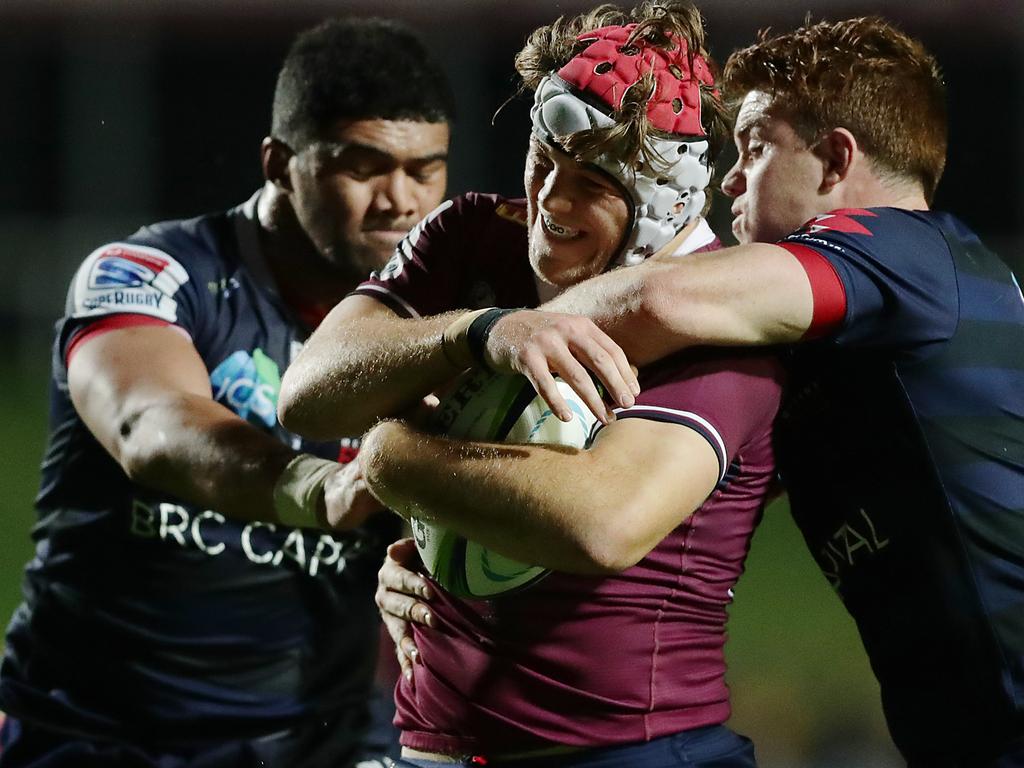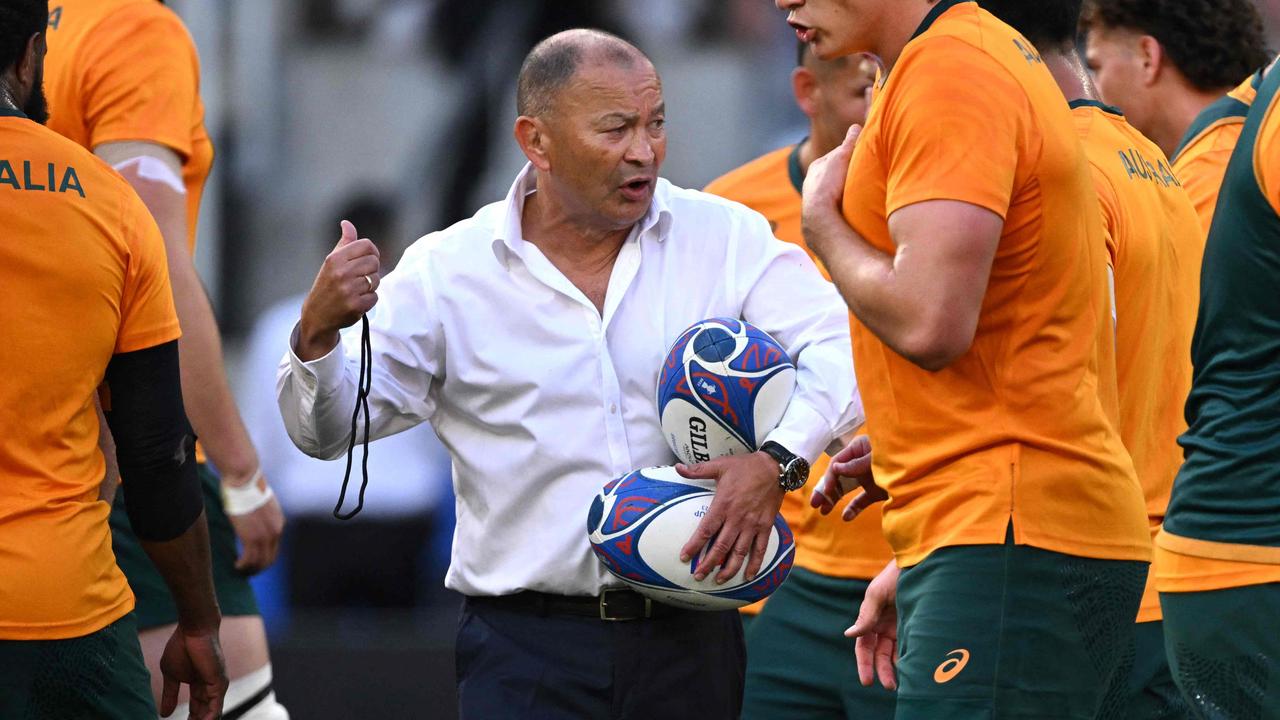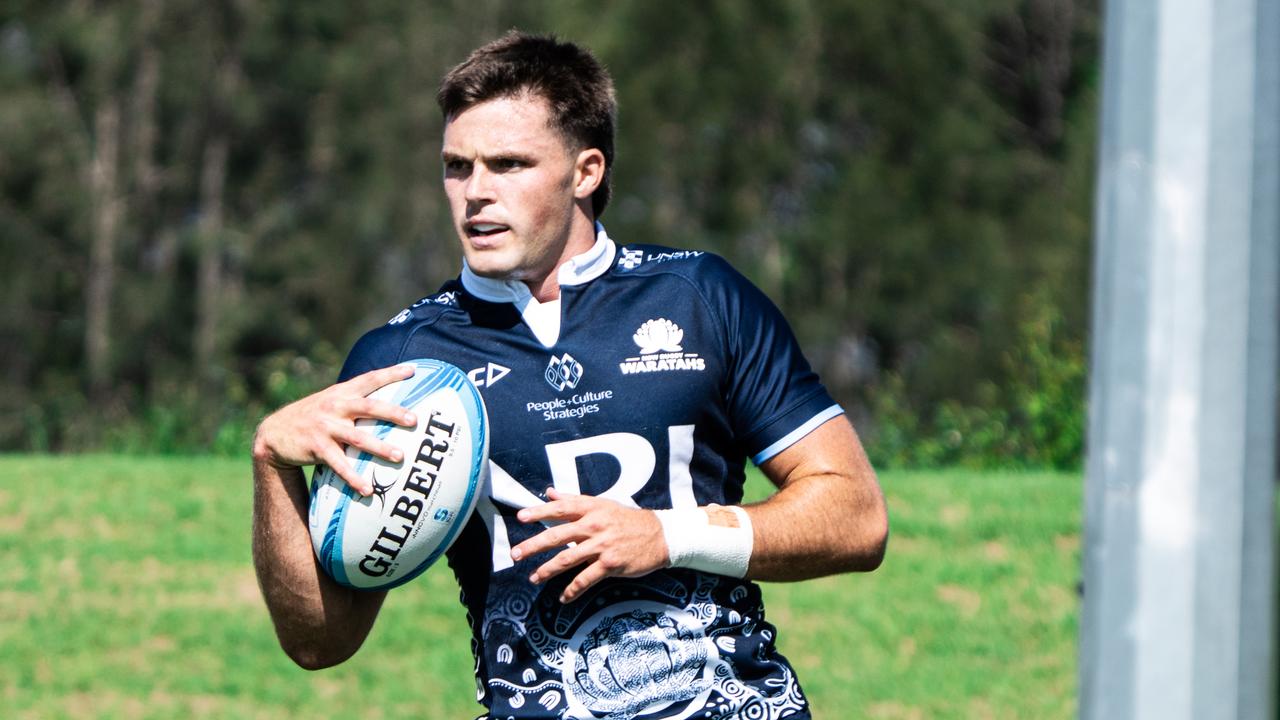Hamish McLennan to New Zealand: Play ball now and we’ll owe you
“This is a moment in time and we will rebuild Australian rugby and at some stage in the future we will repay the favour to New Zealand.”

“This is a moment in time and we will rebuild Australian rugby and at some stage in the future we will repay the favour to New Zealand.”
And with that succinct quote, provided to The Australian on Sunday, Rugby Australia chairman Hamish McLennan hoped to restore a sense of peace to our most important rugby relationship. He only implied it, of course, but that comment is his strongest indication that New Zealand would be allowed to stage the All Blacks’ pool round of the 2027 World Cup if it was prepared to accommodate Australia in its plans for next year’s Super Rugby-style competition.
Things have become very tense lately in trans-Tasman relations and one would presume that the latest salvo to head Australia’s way – an outburst by former All Blacks coach Steve Hansen – was anything but accidental.
In an interview with New Zealand media, Hansen insisted the Kiwis owed Australian rugby nothing.
“But because we are the nation we are and we care about the game more than just ourselves, we bend and buckle a bit,” Hansen said. “I think NZ Rugby are in the mood for having strong discussions … because they only get one shot at it.
“You don’t want to be diluting the talent pool. And then you have to ask ‘do we want our athletes travelling all around the world as much as they have been?’ If the answer is no, you look internally into New Zealand or maybe Australia (for a competition structure) because it’s not too far away.”
Hansen indicated that Australia had “gone missing” every time NZ attempted to call on the Anzac spirit but, by way of evidence, could only cite the incident when Australia allegedly stole the co-sharing rights to the 2003 World Cup away from the Kiwis.
There were doubts over whether the Kiwis could provide advertising-free stadiums for the tournament, a then International Rugby Board requirement, and Australia came to the rescue by volunteering to do the lot.
Certainly that is not the way Hansen or New Zealand rugby view the episode. Steve Tew, the former NZ Rugby boss, might have mouthed diplomatic platitudes in public, but in private he was always looking for ways to punish Australia. Usually he simply unleashed the All Blacks.
So despite the fact that incident occurred 17 years ago, it still is colouring New Zealand thinking and when the opportunity arose to get square, the Kiwis seemingly pounced on it.
With Super Rugby effectively dead and buried, New Zealand has conducted the Aratapu report into what rugby would look like in a post-COVID world and, if the leaks are correct, plan to offer Australia two places, maximum three, in next year’s trans-Tasman competition. Australia, you may recall, has gone for the man, requesting five teams – the four Super Rugby sides, NSW, Queensland, ACT and Melbourne, plus the Western Force.
“We are very keen to do something with New Zealand but it has to be fair and it has to give us the capacity to grow our game,” McLennan said.
On the evidence of the weekend, it would be hard to dispute New Zealand’s dismissive assessment of Australian rugby.
Anyone who watched the Crusaders play the Blues in Christchurch on Saturday would understand why Hansen doesn’t want to see anything that weakens NZ rugby. The match was a gripping contest, played in front of a capacity crowd, the strength, innovation, precision and speed of Aotearoa rugby on display.
Meanwhile, the Australian-only Super Rugby AU ground along painfully on this side of the ditch. The Waratahs-Western Force match at least was intense and there were passages of play that showed both sides in their best light. That the Force were able to rise to that level after a three-year absence from Super Rugby was seriously impressive and suggests they will be competitive throughout this competition, if their conditioning holds.
The Melbourne Rebels-Queensland Reds match at Brookvale Oval on Friday night, however, was awful.
Yes, it was only the second match for the players in four months, while the Kiwis were by now five weeks into their competition. Weather conditions, too, impacted on the spectacle. But the overall package was still tediously dire and even though history was made as the match went into extra time, it still ended in a tame draw as both teams attempted desperately not to lose.
McLennan doesn’t dispute the stark contrast in trans-Tasman standards but he believes the Kiwi argument is based on a precise moment in time, a snapshot in history. Like South Sydney when the club was cut from the NRL in 2000, Australian rugby is vulnerable right when it most needed to be strong. Yet somehow the Rabbitohs rallied, regained their place in the competition and in 2014 revived their glory days by winning the premiership. Like Russell Crowe, McLennan too, is utterly convinced that what Australia does now will echo in eternity.
“Team strength is a fair cop,” he said, acknowledging the superiority of the NZ sides. “But we need to work together to solve it.”
Soon, if events follow a predictable path, Australia will be backed into a familiar corner.
Either it can trim itself back to three teams – four at the most if the Kiwis are tempted by McLennan’s 2027 World Cup offer – and remain at the cutting edge of the game in a trans-Tasman competition, or it can hive off and play a series with all five Australian sides, supplemented by a couple of Japanese teams and maybe a Residents side from the islands.
All this revives painful memories of three years ago. Ironically, even while former chairman Cameron Clyne was arguing the “five into four” line, privately he was being advised by a host of former Wallabies that what Australia really needed to do was cut back to three teams.
And remember the stats circulating in 2017 when Australia had three teams – it won 60 per cent of Super Rugby matches, with four teams it was 50 per cent, with five just 40 per cent.
Somehow the more things change in Australian rugby, the more they stay the same.





